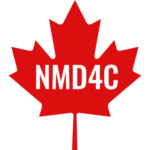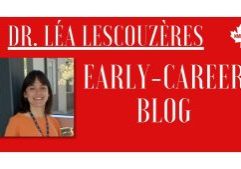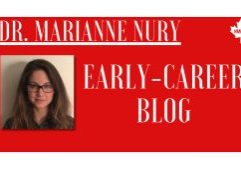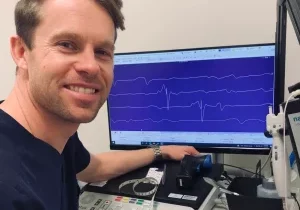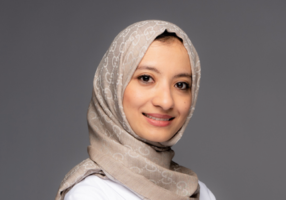Dr. Rebecca Robertson’s Early Career Blog
About Dr. Rebecca Robertson
Dr. Rebecca Robertson is a 2022 NMD4C and MDC postdoctoral research fellowship funding recipient, currently conducting research at McGill University with Dr. Natasha Chang as her postdoctoral supervisor.
Dr. Robertson's research on The role of CARM1 in satellite cell dysfunction in Duchenne muscular dystrophy (DMD) aims to fully assess issues in protein quality in DMD muscle stem cells through a variety of methods. This study will also explore how changes to CARM1 can impact the function of muscle stem cells and how they contribute to muscle repair. The ultimate goal of this work is to provide possible of treatment for DMD through these stem cells.
Dr. Rebecca Robertson's Blog
My path to becoming a neuromuscular researcher has been a long and complex one. I pursued the topics that sparked interest and curiosity in me, gradually working my way to my current position studying muscle stem cells.
I have always been intrigued by the natural world, even as a child. As such, I decided to pursue a bachelor's in biology at Saint Mary’s University. It is here that I first developed an interest in genetics, drawn by how such complex things could be encoded with four basic building blocks of our DNA. In the last year of my bachelors, I completed an Honours thesis in the Lab of Dr. Tim Frasier, where I worked on the population genetics of Sable Island Horses. Here, I examined how their inbreeding could cause increased mortality. This work sparked my interest in disease research, as it fascinated me how such small changes could lead to catastrophically large effects. I subsequently spent a year at Concordia, completing a graduate diploma in Biotechnology and Genomics, before joining the lab of Dr. Bernard Brais for my PhD, whose area of research focuses on rare neuromuscular diseases. Here, I began my work on BAG3 myofibrillar myopathy, a rare and severe form of muscular dystrophy.
This myopathy research led me to be fascinated by how plastic muscle is, as well as its constant cycles of damage and repair. As I completed this project, I saw how muscle stem cells could play an important role in the pathology of this disease and was excited by the potential in researching them. This newfound interest led me to do my Postdoc in the lab of Dr. Natasha Chang, who studies muscle stem cells and their role in diseases such as Duchenne muscular dystrophy. Here, I study how their dysfunction influences disease progression.
I could not have gotten where I am without the support of a solid network of other researchers to rely on. My research did not truly take off until these people were present. While learning to be an independent researcher is important, my advice to early career researchers, as well as those more progressed in their careers, is to view research as a collaborative process and to seek out connections with your peers early. We are better when we are generous with our knowledge, instead of treating science as an insular pursuit.
